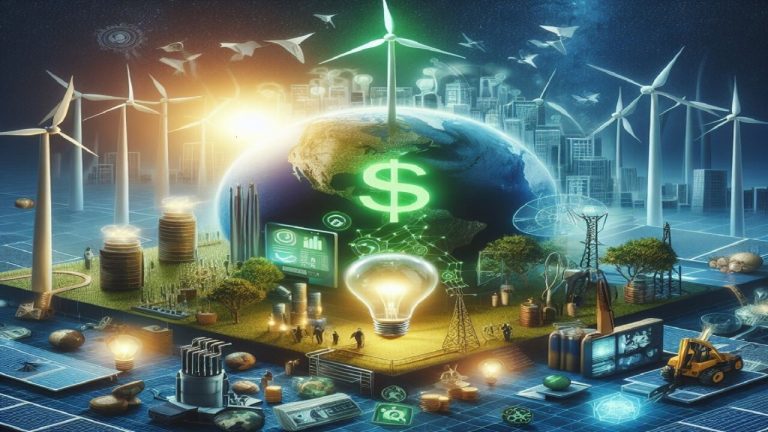
Renewable energy technology has emerged as a critical solution in addressing global energy challenges while mitigating environmental impact. This article explores the fundamentals, types, benefits, challenges, applications, and future prospects of renewable energy technologies, highlighting their transformative role in transitioning towards a sustainable energy future.
Fundamentals of Renewable Energy Technology
Renewable energy technologies harness naturally replenishing resources to generate electricity or heat. Key sources include:
- Solar Energy: Captured through photovoltaic (PV) panels or concentrated solar power (CSP) systems that convert sunlight into electricity or heat.
- Wind Energy: Generated using wind turbines that convert kinetic energy from wind into mechanical power, which is then converted into electricity.
- Hydropower: Generated from flowing water using turbines to convert mechanical energy into electricity, often utilizing dams and reservoirs.
- Bioenergy: Derived from organic materials such as wood, crops, and organic waste, converted into biofuels, biogas, or used directly for heat and electricity generation.
Types and Benefits of Renewable Energy
- Environmental Sustainability: Renewable energy sources produce little to no greenhouse gas emissions, reducing reliance on fossil fuels and mitigating climate change impacts.
- Energy Security: Diversifies energy sources, reducing dependence on imported fuels and enhancing energy resilience.
- Cost Competitiveness: Continual technological advancements and economies of scale have driven down the costs of renewable energy technologies, making them increasingly competitive with conventional sources.
- Job Creation and Economic Growth: Renewable energy industries create jobs in manufacturing, installation, and maintenance, contributing to economic development.
Challenges in Renewable Energy
- Intermittency: Variability in renewable energy sources like solar and wind necessitates energy storage and grid integration solutions to ensure reliable supply.
- Infrastructure and Grid Integration: Upgrading and expanding transmission and distribution infrastructure to accommodate decentralized renewable energy sources.
- Policy and Regulatory Frameworks: Inconsistent policies and regulations affecting investment certainty and market growth for renewable energy technologies.
- Technological Innovation: Continued research and development are essential to improve efficiency, reduce costs, and address technical challenges in renewable energy generation and storage.
Applications Across Sectors
Renewable energy technologies are deployed across various sectors:
- Electricity Generation: Providing clean, sustainable electricity for residential, commercial, and industrial consumption.
- Transportation: Powering electric vehicles (EVs) through renewable electricity and developing biofuels for aviation and shipping.
- Heating and Cooling: Utilizing solar thermal systems and biomass for residential and industrial heating applications.
- Remote and Off-grid Communities: Providing reliable electricity access in remote areas through decentralized renewable energy systems.
Future Prospects and Innovations
- Energy Storage: Advancing battery storage technologies and exploring alternative storage solutions such as hydrogen for grid stability and renewable energy integration.
- Smart Grids and IoT: Implementing intelligent grid management systems to optimize renewable energy use, improve efficiency, and enhance reliability.
- Offshore Wind and Floating Solar: Expanding offshore wind farms and floating solar arrays to capitalize on untapped renewable energy potential.
- Hybrid Systems: Integrating multiple renewable energy sources and complementary technologies to enhance reliability and maximize energy yield.
Conclusion
Renewable energy technologies represent a cornerstone in achieving sustainable development goals by reducing greenhouse gas emissions, enhancing energy security, and fostering economic growth. As global efforts intensify to combat climate change and transition towards clean energy systems, investments in renewable energy infrastructure, innovation, and supportive policies are crucial. Embracing renewable energy technologies not only benefits the environment but also drives technological advancements, creates jobs, and improves energy access worldwide, paving the way towards a more sustainable and resilient energy future.